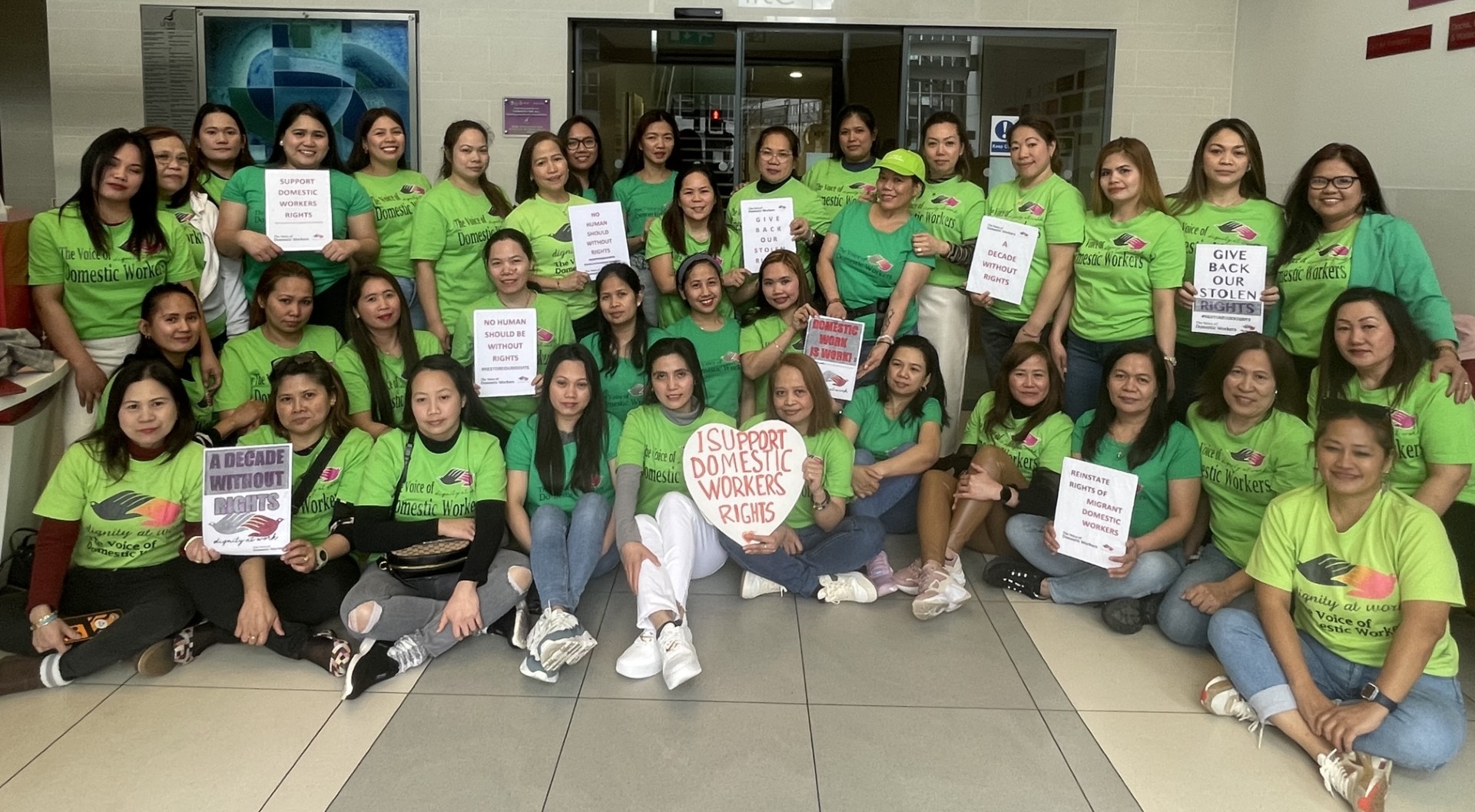Back home in the Philippines, life was very tough. I’m a college graduate and I worked as an admin assistant, but the salary was not enough. We were living in poverty and I needed to find a solution to support my family. My mother went to Australia to work as a domestic worker and I decided to do the same, leaving home for Saudi Arabia in 2007.
This employer in Saudi Arabia was exploitative and abusive, but I had to continue working for them due to my family’s financial situation. They first brought me to the UK in 2009 and forced me to work as a nanny and housekeeper for not one, but three families, living in central London.
I worked long hours without any days off and my bed was under the dining table on the floor, so it was freezing cold. They only let me eat leftover food and if there was none, I had nothing to eat. My employer also confiscated my passport, so I had no identification documents.
- ‘Tied’ visas are putting migrant domestic workers at risk of abuse
- Reports of forced labour, sex trafficking and domestic servitude at record high in Britain
There came a point in 2013 when I decided I had to leave, because I couldn’t bear it anymore. Yet I couldn’t do this easily — I was forced to run away. Just a year earlier, in April 2012, the British government changed immigration rules as part of the hostile environment policy. This change revoked the Overseas Domestic Worker Visa, which had previously granted employment rights to domestic workers. With these new changes, migrant domestic workers like myself completely lost our basic rights, including the right to work, the right to change employers, and the right to settle in the UK.
Not only did these changes mean that I was trapped with my exploitative employer for so long; it also meant that the moment I escaped, I became undocumented. This situation was a huge barrier to me living a normal life. I was always on the move, living in different places, and living in fear because I was vulnerable without the proper documentation, therefore at risk of being arrested, detained and deported.
I was so lucky to find The Voice of Domestic Workers, a campaigning organisation and support network for migrant domestic workers, through social media in 2015. It was here that I learned about my rights and gained confidence and empowerment.









